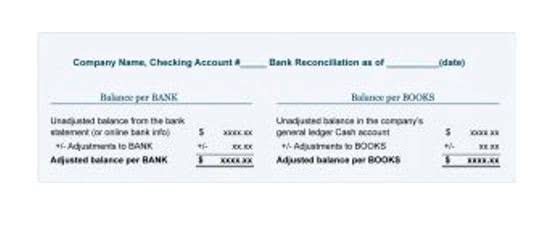
Accountants help businesses understand the bigger picture of their financial situation. Double-entry bookkeeping records all transactions twice, usually a debit and a credit entry. Typically, double-entry bookkeeping uses accrual accounting for liabilities, equities, what is a bookkeeper assets, expenses and revenue. Typically, single entry bookkeeping is suitable for keeping track of cash, taxable income, and tax deductible expenses. Double-entry bookkeeping is the practice of recording transactions in at least two accounts, as a debit or credit.
Just a Few More Details
- Financial statements are essential tools for conveying a company’s financial performance and economic condition.
- You must have a minimum of 150 postsecondary education hours, or what amounts to a bachelor’s degree in accounting, and an additional 30 hours of graduate work.
- Data entry can now happen as soon as you snap a photo of a receipt with your smartphone.
- If you’re only focusing on expenses and not big-picture financial data, you’ll miss out on some strategic opportunities.
- The ledger reflects a company’s financial status holistically, showing all debits and credits across all accounts.
Journals serve as preliminary records where transactions first enter the bookkeeping system, while the ledger compiles these entries into accounts. The ledger reflects a company’s financial status holistically, showing all debits and credits across all accounts. Bookkeeping is broadly defined as the recording of financial transactions for a business. It’s a key component of the accounting process and can be done as frequently as daily, weekly or monthly. Accurate bookkeeping is vital to filing tax returns and having the financial insights to make sound business decisions. An asset account in the bookkeeping system in which is entered money that has not yet been deposited to the bank.
Job Outlook
If you don’t feel comfortable with a freelancer, there are many firms that offer bookkeeping services as well. When first starting out, market yourself as a professional who is well-versed in managing accounts, reconciling transactions, providing financial overviews and balancing budgets. Ask for testimonials from people who have utilized your services in the past and spread the word about your offerings through a website or social media. Unfortunately, the company only has $3,000 of cash on hand and no liquid assets to quickly sell for cash.
- In bookkeeping, extra hours are typical during the busy tax season of January to mid-April.
- If your bookkeeper bills your customers or pays your vendors and employees, make sure you have proper checks and balances in place to mitigate the possibility of fraud.
- Accounting is the interpretation and presentation of that financial data, including aspects such as tax returns, auditing and analyzing performance.
- It should give you a great starting point for perfecting your bookkeeping strategy.
- For example, let’s say that your business is losing money each month or that your overhead costs are too high.
What Is Bookkeeping? Duties, Pay, and How to Become a Bookkeeper

As a partial check that the posting process was done correctly, a working document called an unadjusted trial balance is created. Column One contains the names of those accounts in the ledger which have a non-zero balance. If an account has a debit balance, the balance amount is copied into Column Two (the debit column); if an account https://www.bookstime.com/articles/ecommerce-bookkeeping has a credit balance, the amount is copied into Column Three (the credit column). The debit column is then totalled, and then the credit column is totalled. The two totals must agree—which is not by chance—because under the double-entry rules, whenever there is a posting, the debits of the posting equal the credits of the posting.
They look at all of the financial details of a company so they can make larger decisions about how the business operates. A cash register is an electronic machine that is used to calculate and register transactions. The cashier collects the cash for a sale and returns a balance amount to the customer.

- Accountants help businesses understand the bigger picture of their financial situation.
- Depending on the city, you can expect to earn between $40,000 and $60,000 your first year as a Big Four accountant.
- Learn more about what bookkeepers do and how to get started in this career.
- There are opportunities for forensic accountants in many industries, like nonprofit work, government and law-enforcement agencies, law firms, and large corporations.
- It may also cover just a three- or six-month period, i.e., a quarter or half-year.
- As a financial auditor, you may work as an external or internal auditor.
- It offers features such as income and expense tracking, invoice creation, and financial reporting.
A document that details the sale or purchase of stock, parts or services. The invoice will show the main details such as date, invoice number, quantity, description, cost, total, payment terms. When a business buys the products or services it will receive a purchase invoice and when the business sells products or services it will provide a sales invoice to the customer.
These strategies tie directly to an organization’s financial planning and strategic decision-making. Both financial institutions and investors depend on reliable bookkeeping to foster trust and transparency in their relationships with businesses. Compliance with the accounting standards recognized by these stakeholders is imperative for securing funding and maintaining ongoing investment. Effective management of accounts receivable is essential for maintaining healthy cash flow and for the sustainability of business operations. Financial statements are essential tools for conveying a company’s financial performance and economic condition. These reports offer comprehensive insights into the financial activities and outcomes for a designated period.


- Nevertheless, modern bookkeepers are doing exactly the same as the clerks were in the novels of Charles Dickens.
- And even if you’re not looking for funding, consider asking an accountant to review your financial statements at least once a year.
- Balance sheet accounts are assets, liabilities, and stockholder or owner equity.
- Although accounting extends beyond transaction records, incorporating financial planning and analysis, it is built on the precise information supplied by bookkeeping practices.
- These strategies tie directly to an organization’s financial planning and strategic decision-making.
- The single-entry system of bookkeeping requires recording one entry for each financial activity or transaction.

